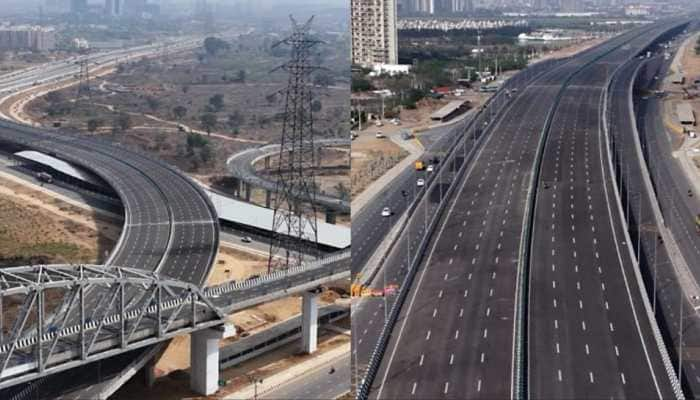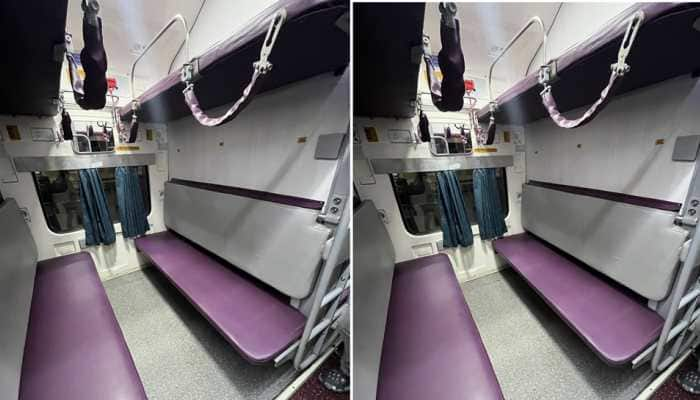PM Modi asks Muslim community not to politicise triple talaq issue, urges them to initiate reform
Prime Minister Narendra Modi said on Tuesday that Muslim community shouldn't allow issue of triple talaq to be politicised.
Trending Photos
) Pic courtesy: ANI
Pic courtesy: ANI Delhi: Prime Minister Narendra Modi said on Tuesday that Muslim community shouldn't allow issue of triple talaq to be politicised.
At the same time, he urged them to take responsibility for initiating reform, as per PTI.
PM made the comments when a delegation of leaders from the Muslim community, under the umbrella of Jamiat Ulama-i-Hind met him.
After meeting him, Maulana M Madani said, "His (PM Modi) attitude on all issues was reasonable and satisfactory. We are leaving with lot of hopes," as per ANI.
Yesterday, Jamaat-e-Islami Hind's nationwide had in a statement - "India's top Muslim clerics have unequivocally asserted that shariat (personal laws) is divine and hence, no government or court has the right to make any changes in it."
The clerics observed in the meeting of Jamaat-e-Islami Hind's nationwide Muslim personal law awareness campaign that Muslim disputes over family matters are reaching courts because of "ignorance or deliberate" misuse of shariat provisions and so the personal laws cannot be held responsible for it.
"Instead, there is a strong need to educate Muslim masses about shariat to impress upon them to follow it honestly and to open counselling centres and shariat panchayats to resolve any dispute over family matters," the statement had added.
JIH's national president Syed Jalaluddin Umari, All India Muslim Personal Law Board secretaries Khalid Saifullah Rahmani and Maulana Fazlurrehman Mujaddidi and Islamic scholar Zafarul Islam Khan and others had taken part in the meeting in the national capital.
Mujaddidi had said that the recent "hue and cry" over the practices of 'triple talaq' and polygamy were "part of a global conspiracy" to target social and family system of Islam.
The meeting was culmination of JIH's awareness campaign held between April 23 and May 7.
The Centre had on October 7 last year opposed in the Supreme Court the practice of 'triple talaq', 'nikah halala' and polygamy among Muslims and favoured a relook on grounds like gender equality and secularism.
Meanwhile, on May 03, former union minister and senior advocate Salman Khurshid was allowed by the Supreme Court to assist it in the hearing of a batch of pleas challenging the constitutional validity of 'triple talaq', 'nikah halala' and polygamy practices among the Muslims.
A five-judge constitution bench would commence hearing from May 11 to decide on the batch of petitions challenging the practices of 'triple talaq', 'nikah halala' and polygamy among Muslims.
The Centre had on April 11 filed fresh submissions in the apex court, saying these practices impacted the social status and dignity of the Muslim women and denied them the fundamental rights guaranteed by the Constitution.
The government had reiterated its earlier stand and had said that these practices rendered the Muslim women "unequal and vulnerable", not only compared to the men of their community, but the women of other communities as well.
The apex court had on March 30 observed that 'triple talaq', 'nikah halala' and polygamy were important issues involving "sentiments".
The Centre had said these practices emerged from "patriarchal values and traditional notions about the role of women in society", asserting that "the right of a woman to human dignity, social esteem and self-worth are vital facets of her Right to Life under Article 21".
'Nikah halala' is a practice intended to curb the incidence of divorce under which a man cannot remarry his former wife without her having to go through the process of marrying someone else, consummating it, getting divorced again, observing the separation period called 'Iddat' and then coming back to him.
(With Agency inputs)
Stay informed on all the latest news, real-time breaking news updates, and follow all the important headlines in india news and world News on Zee News.
Live Tv







)
)
)
)
)
)
)
)
)
)
